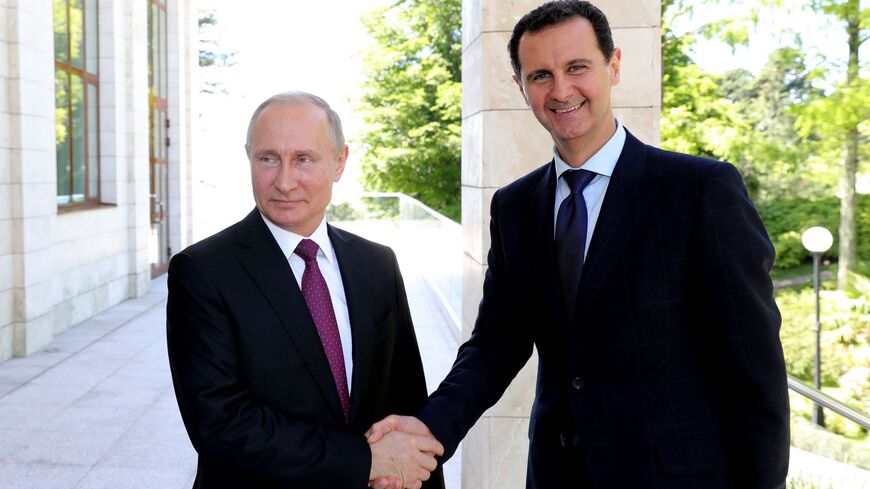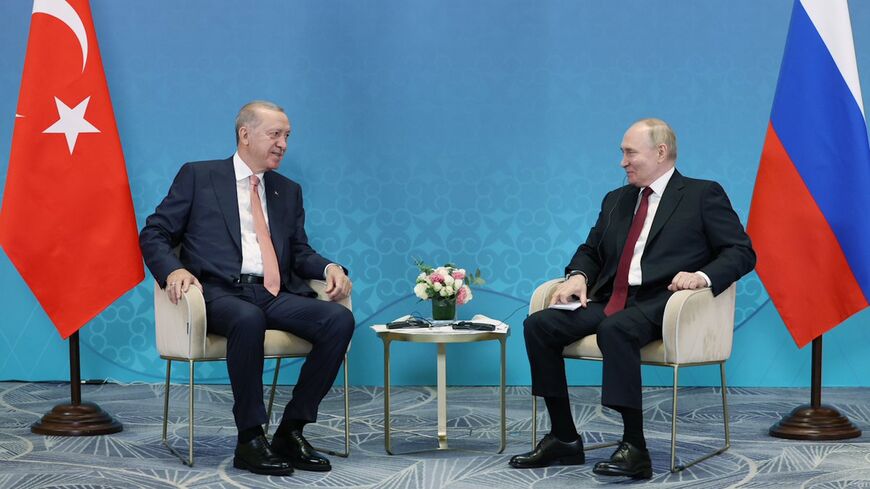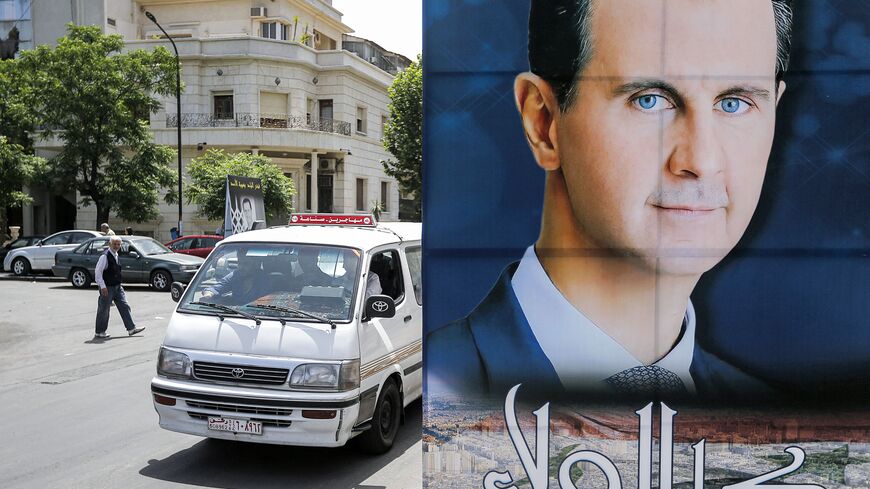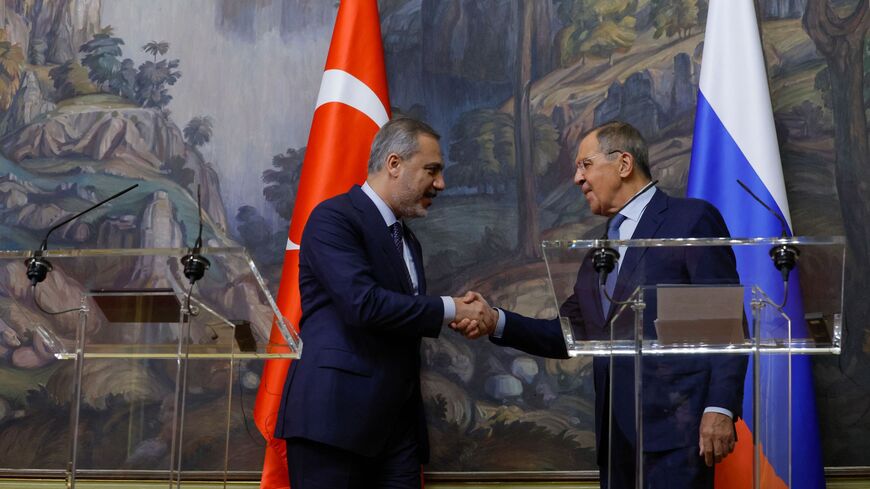Syria’s Assad meets Putin in Russia amid Turkey dialogue push
Russia has been the main backer of President Bashar al-Assad’s forces against rebels throughout the Syrian civil war.

Russian President Vladimir Putin hosted his Syrian counterpart, Bashar al-Assad, in Moscow for talks on bilateral ties and the situation in the Middle East, Russian and Syrian state news outlets revealed on Thursday.
The meeting took place late on Wednesday, according to the Russian state-owned RIA news agency.
Putin said the meeting was an opportunity to discuss the situation in the region, which is becoming increasingly tense. “This also directly concerns Syria,” RIA cited the Russian president as saying.
Putin also noted “promising opportunities for economic and trade relations between Syria and Russia.”
For his part, Assad highlighted the difficult challenges that the Russian-Syrian relations have faced in the past decades but noted that the two countries always managed to overcome them based on “mutual trust and credibility,” according to RIA.
Assad said his meeting with Putin was “very important" for discussing events taking place in Eurasia and globally.
The meeting comes amid ongoing regional efforts to restart direct talks between high-level Turkish and Syrian officials. Turkish President Recep Tayyip Erdogan said earlier this month that he had extended an invitation to Assad for a trilateral summit with Putin either in Turkey or in another country.
Moscow has sought to mediate between Damascus and Ankara, which backs Sunni-armed Syrian opposition groups. No breakthrough was achieved in the talks launched in 2022 as Assad pushed for the withdrawal of Turkish troops from northern Syria. Ankara fears that such a move could create a power vacuum that could be filled by the US-allied and Kurdish-led Syrian Democratic Forces, which Turkey deems a top threat to its national security due to Ankara's own decades-old Kurdish problem at home. Turkey equates the Kurdish-led SDF with the outlawed Kurdistan Workers Party (PKK), which has been waging an armed campaign for Kurdish self-rule inside Turkey since 1984. While Ankara, Washington and the majority of European capitals consider the PKK a terrorist organization, the SDF is a major ally of the US-led international coalition against the Islamic State in parts of north and eastern Syria.
Speaking to Sky News Arabia on Wednesday, Turkish Foreign Minister Hakan Fidan reaffirmed his country's commitment to resume direct talks with the Syrian government amid ongoing Iraqi mediation efforts. But Fidan repeated that Turkish forces cannot withdraw from the war-torn country before Syrian opposition groups and Damascus reconcile.
The two leaders last met in March 2023, during Assad’s visit to Moscow that coincided with the 12th anniversary of Syria’s uprising-turned-civil war. The talks at the time focused on the reconstruction of Syria and Russia’s efforts to stabilize the war-ravaged country.
In March, Putin and Assad held a phone conversation, during which the Syrian leader expressed his country’s support for Russia in “its fight against terrorism,” SANA reported at the time, in reference to the Islamic State-claimed attack at the Crocus City Hall near Moscow that killed at least 144 people on March 22.
Russia has backed Assad throughout the Syrian civil conflict while the Syrian leader was regionally and globally isolated over his government’s brutal crackdown against the 2011 peaceful anti-regime protests. In 2015, the Russian military formally intervened in the war in Syria to support Assad’s forces against the opposition. With Russian backing, Assad managed to regain much of the territory that he had lost at the beginning of the war. Russia has several bases across Syria, including the Khmeimim airbase in Latakia province on the Mediterranean coast and a naval facility in the sea port of Tartus.
Wednesday’s meeting coincides with growing regional tensions resulting from the Israel-Hamas war that has been raging in the Gaza Strip since October 2023.
Iranian-backed groups in the region, including Lebanon’s Hezbollah and Yemen’s Houthi rebels, are launching near-daily attacks against Israel in support of the Palestinian group Hamas. In Syria, several groups affiliated with Iran or Hezbollah have repeatedly launched drones and missiles at Israel. The Israeli military has responded with several strikes inside Syrian territory.
In April, Russia’s Foreign Ministry slammed a suspected Israeli strike on the Iranian Consulate in Damascus that killed at least seven people, including two IRGC commanders.
“We consider any attacks on diplomatic and consular facilities, the inviolability of which is guaranteed by the relevant Vienna Conventions, to be categorically unacceptable,” the ministry said in a statement.
Earlier in March, Moscow similarly condemned suspected Israeli airstrikes that killed over 40 people in Syria’s Aleppo. The Foreign Ministry described the attack as an “aggressive act that constitutes a blatant violation of Syria’s sovereignty.”
Ezgi Akin contributed to this report from Ankara.







